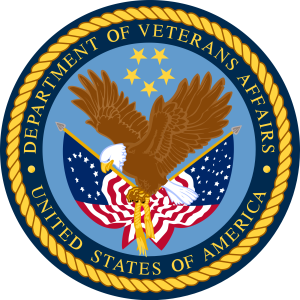February 26th, 2016
Caring For Today’s Veterans
Briana Buckner, MD

Briana Buckner, MD, is a 2015-16 Chief Resident in Internal Medicine at the University of Pennsylvania in Philadelphia.
For most of residency, I missed the opportunity to care for veterans — mainly for selfish reasons, including my unwillingness to learn a new EMR and hospital. Once I became a chief resident, I realized that I would be spending 4 months at our local VA hospital. When I first came to the VA as a chief, my goals were similar to that at any other site at which I work: Get to know the staff, present quality conferences, and look after the residents. Little did I know that the VA would open my eyes to the special concerns of the millions of Americans who have served in the military.
On my first day, I was incredibly touched by how different it was to walk in the hallways at the VA, compared with my other sites. A casual trip to the cafeteria was showered with “Good morning, Doc. How you doing, Doc? Have a great day, Doc” and any other respectful salutation that you could think of. It initially seemed to be casual conversation, but I soon realized it was a sign of the culture. A military culture of respect that was palpable even in the hallways or cafeteria!
 As I continued to adapt to my environment, I learned that this patient population had unexpected subtle differences from my other patients. There was a spirit of stoicism that often led me to underestimate how much pain a veteran was really in, and often left me surprised when I would check the medicine administration record to see my patient with an impressive wound had not requested any pain medication. Then there was communication of treatment plans — the veterans, as a whole, did not like uncertainty. I often found patients telling my team, “Doc, I don’t want to be no guinea pig. You know what you’re doing, right?”
As I continued to adapt to my environment, I learned that this patient population had unexpected subtle differences from my other patients. There was a spirit of stoicism that often led me to underestimate how much pain a veteran was really in, and often left me surprised when I would check the medicine administration record to see my patient with an impressive wound had not requested any pain medication. Then there was communication of treatment plans — the veterans, as a whole, did not like uncertainty. I often found patients telling my team, “Doc, I don’t want to be no guinea pig. You know what you’re doing, right?”
I often stopped in my tracks and felt a gut check when a veteran opened up to me about seeing the death of a friend, being away from home for years, or having nightmares from their time in the military that often was many decades ago. I was most humbled by the patients who were the same age as I. The young man or woman who, if I saw him or her in the mall, I would never know the depths of the service they had given. Today’s veterans have new faces that I wasn’t prepared for. They are not just the faces of my Great Uncle and Grandfather (both veterans), they look like friends I went to college with.
There are more than 2.6 million service members that have been deployed to Iraq and Afghanistan since 2001 (Ann Intern Med 2013; 159:ITC1), and many of these Americans have returned to civilian life after serving their country. This generation of veterans are jumping back into the civilian workforce and seeking care from civilian healthcare providers. The medical needs of this population are specific and include monitoring for post-traumatic stress disorder, substance abuse, depression, and long-term sequela of traumatic brain injury. Without my time working at the Veterans’ hospital I might never have learned how to appropriately care for this population. I truly feel a tremendously deep appreciation for the sacrifices that these patients have made. Many of them are homeless and have yet to recover from what they encountered while in the military.
Today’s veterans are a heterogeneous group who deserve physicians who will adapt to their needs and see them in respectful light. I encourage all young medical students and residents to see their time in Veterans Affairs hospitals as a unique opportunity to learn, connect, and truly see this special population through an honest lens. My own lens is forever changed, and I hope to say, “thank you for your service,” a little more often than just on Veterans’ Day.


What a marvelous article! As both a two-time veteran and a healthcare provider, I have been both a recipient and provider of care to veterans. Your observations of stoicism, respect, and gratitude mirror my observations of time spent in VA hospitals, and your reminders of how to care for veterans in a civilian health care setting are timely and spot-on.
As a service connected disabled veteran who has had to rely on the VA so called medical/hospital system I appreciate your observations and encouragement to practitioners to do right by veterans. What I am surprised is that you find little fault in the VA Administration’s attidude toward veterans and the lengths the VA Administration goes to deny or avoid bring state of the art treatment to veterans.
In my particular case the VA refused to test for the cause of my pain, refused to accept my observations that combinations of drugs were causing dangerous symptoms, laughed at me when I informed doctors of the problems I was suffering when I was injected with opioid based local pain killers……Long story short..unemployable… I paid with for medical services with my wife’s pay for 39 years before I was able to overcome the VA’s negative and false medical statements in my attempt to get a complete neurological work up and low and behold – I was not a fraud…the pain, stiffness and spasms that set in while on active duty after suffering necrosis infection ( gangrene ) could be explained by antigens associated with stiff person syndrome. At the time I was rated as 60 percent services connected disabled veteran and entitled to treatment at a VA medical facility. When I took the medical findings to the VA neurology department the denied that I had SPS, then when I forced the “system to accept the finding the doctors told me they were not able to offer IVIG treatment ( a blatant lie) the story goes on.
I have watched men die in a VA waiting room because “he did not deserve quick treatment – he’s a drunk”…vomiting blood while he waited and waited , dying while he waited to be treated…….I think you should be encouraging every Vet be given the liberty to take his health care to any licensed practitioner without constants from the VA. We need the right to obtain care from well trained and ethical doctors in timely fashion…..Did you really miss the corruption and malpractice that our government force onto the Veterans and Practitioners?….not spell checked or grammatically corrected.